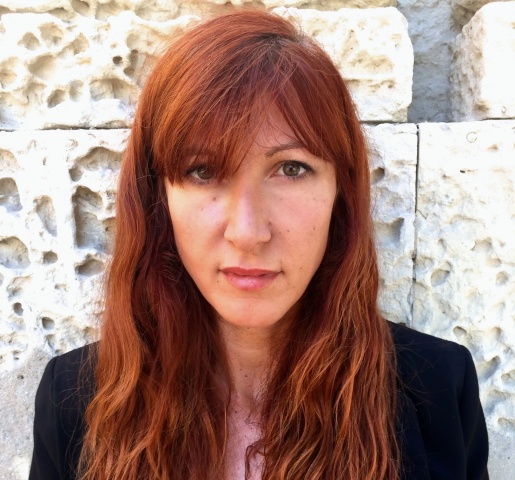Federica Di Giacomo – Facing Demons
Federica Di Giacomo is a critically acclaimed, award-winning Italian director who has built her reputation on a series of hard-hitting and sometimes controversial documentaries. Her latest movie, Deliver Us (Liberami) focuses on the mysterious, practice of exorcism and those who turn to it for hope when all else appears to have failed. We caught up with Federica to understand her motivations for making the film.
Even in a world of AI, Machine Learning and growing predictions about the rise of the robots, the medieval practice of Exorcism remains a fact of contemporary life. Every year, a growing number of people claim that their illnesses are caused by demonic possession
The Catholic Church reacts to this crisis by nominating priests as exorcists in increasing numbers and by organizing training courses for them. In order to respond to the rising number of requests for deliverance from evil, all French dioceses have installed at least one exorcist. In Spain, the archdiocese of Madrid is desperately trying to fill seven additional positions.
In Rome and Milan alone, the number of exorcists has grown from six to 12, and the Church has set up an emergency call center. In the US, the number of exorcists has increased tenfold over the last few years.
So, in a society dominated by smartphones and social media, how can this even be possible?
“There are many different worlds that exist in this one much bigger world we inhabit and sometimes trying to find a collective narrative that makes sense is impossible,” Federica Di Giacomo tells me as we begin the interview.
“This project has been a real labour of love for me and took three years from start to finish to complete. That’s a lot of dedication, trust and a clear determination to create a film that is about education rather than exploitation. I was keen to represent something that a lot of people still attach a great deal of belief to.
“I must be honest the prospect did frighten me. There is a wealth of material that exists from fiction but I had never come across a story that documented the true human experience.”
Much of the film focuses on Italian priest, Father Cataldo, a veteran of the craft and one of the most sought-after exorcists in Sicily. Every Tuesday, many believers follow his mass of liberation, searching for a cure for some adversity for which there does not seem to be a label or a remedy.
“I quickly realized that what was unfolding before me on camera challenged every preconception I had about illness and pain, within a parallel world that was also alien and unfamiliar to me.”
Quite often the film is harrowing to watch and whilst it does not seek to provide answers, it left me wondering why such a dangerous practice – that does not appear to be regulated in any scientific way – is allowed to flourish. Exorcists like Father Cataldo are being called upon to often perform the functions of a doctor, putting themselves as well as their parishioners at risk.
“I was very careful not to deliver a commentary,” Federica reminds me. “I wanted the audience to make up their own minds based upon what unfolded before their eyes on the screen and the church was supportive of my approach.
“Whether you believe in God or not, the priest, especially in a country like Italy, remains a cultural icon.”
But as a woman raised in a Catholic family does she feel she is able to tell her story with a strong sense of impartiality.
“I hope you can see that in the movie. The concept of good and evil is a fascinating one for me but my beliefs have nothing to do with the narrative. I am not a religious person myself. My main intention was to remove the fear around this subject – a fear I shared in also – and highlight the humanity and the irony.
“People come to see these exorcists in the hope that they will be somehow transformed but it can be nothing more than a temporary relief because the real issue is so much bigger.”
Federica sites “Deliver Us” as being her most challenging work and it changed her perception on life as she began to understand how so many people were affected by the problems.
“Technology leads to isolation. The breakdown of family structures and wider communities lead to a fragmented society that in turn leads to isolation. Most of the people who suffer in this film live very isolated lives.”
Does she believe then that the answer lies not with God but in the system of government?
“It is not quite that simple. Whether you believe he exists or not isn’t the question. For many of those featured in this film God’s existence isn’t even up for debate.”
They say prevention is better than cure and for me that is the real point here. Science and religion can – and will continue to – battle it out for centuries to come. The answer doesn’t necessarily lie with either camp.
The last word goes to Federica who tells me that for her, there could still be more to come.
“This is such a big story that I don’t feel I have yet told the whole tale and I may – if my nerves allow me – return to this subject at some point in the future.”
“Deliver Us”, is out now on DVD and also in selected cinemas around the country for a selected time.
George R Vaughan


